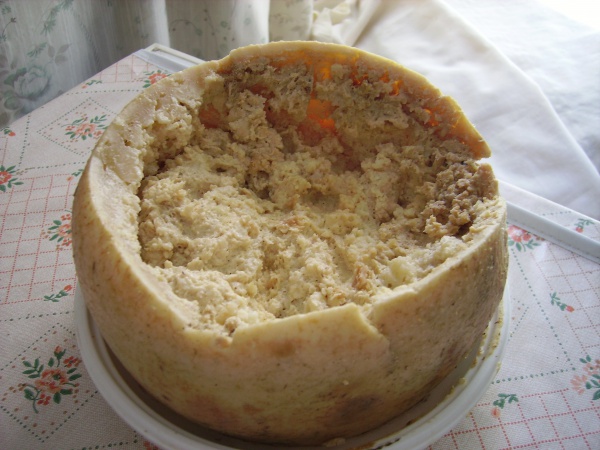Facts About Casu marzu
Casu marzu, also known as casu modde, casu cundídu, and casu fràzigu in Sardinian, is an extraordinary cheese from Sardinia made from sheep’s milk and teeming with live insect larvae. This cheese begins its journey as pecorino but undergoes a unique fermentation process facilitated by the larvae of the cheese fly, Piophila casei. This activity results in an exceptionally soft cheese, sometimes so soft that it oozes, with visible larvae wriggling within.
The production method is quite distinctive: whole pecorino cheeses are exposed outdoors with a portion of the rind removed to allow cheese flies to lay their eggs. Once the eggs hatch, the larvae consume the cheese, accelerating the fermentation process. It's typically consumed while the maggots are still alive, as it's considered unsafe once the larvae die. The cheese is often enjoyed on slices of moistened Sardinian flatbread and paired with red wine. Fascinatingly, it’s also believed to have aphrodisiac properties.
However, consuming casu marzu carries inherent risks. Some of the larvae may survive the digestive process and cause a condition known as pseudomyiasis. Due to these health risks, the European Union has banned the cheese, yet it continues to be clandestinely produced and sold in Sardinia. Efforts are ongoing to have it recognized as a traditional food, which could potentially exempt it from the ban.
Casu marzu is not unique in its use of insect larvae. Similar cheeses exist in regions like Corsica and various parts of Italy. Examples include Bross ch’a marcia in Piedmont, Cacie' Punt in Molise, and Gorgonzola coi grilli in Liguria. Other European regions also produce cheeses that employ arthropods for aging and flavoring.

 Vatican
Vatican